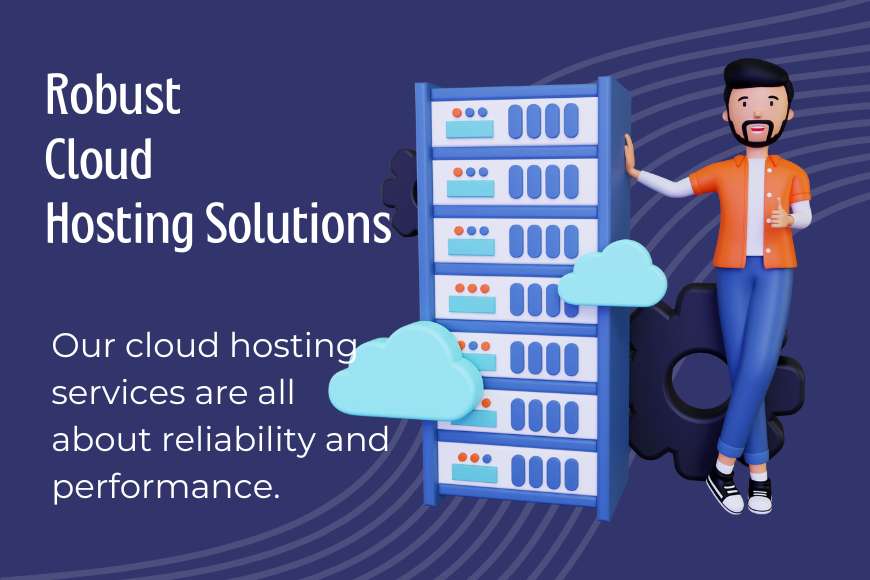
Unlocking the Clouds: A Deep Dive into Cloud Hosting
Introduction
In the vast expanse of the digital sky, cloud hosting emerges as a beacon of innovation and flexibility, redefining the way we think about data management and website hosting. It’s a universe where computing resources are abundant, and the possibilities are as limitless as the clouds themselves.
What Is Cloud Hosting?
The Essence of Cloud Hosting
At its core, cloud hosting is a service that allows you to store and manage data across multiple interconnected servers that reside in a virtual environment, often spread across various locations. Unlike traditional hosting, where your site’s resources are tethered to a single server, cloud hosting draws its power from a collective network, ensuring higher reliability and scalability.
How Does It Work?
Imagine a tapestry woven with threads of various colors, each representing a different server. Cloud hosting merges these threads into a cohesive fabric, ensuring that if one thread weakens, the others seamlessly contribute to sustain the pattern. This interconnectedness allows for data to be served from multiple points, enhancing accessibility and performance.
Major Advantages of Cloud Hosting
Scalability: The Elastic Advantage
One of the crowning glories of cloud hosting is its scalability. Whether your website experiences a sudden traffic surge or you’re expanding your online offerings, cloud hosting can easily adjust to your changing needs, ensuring your site remains smooth and responsive.
Reliability: Uptime, All the Time
Reliability is another hallmark of cloud hosting. Thanks to the distributed nature of cloud resources, the risk of downtime is significantly reduced. If one server encounters an issue, others within the network can take over, ensuring your website remains up and running.
Cost-Effectiveness: Pay for What You Use
With cloud hosting, the cost-effectiveness angle shines through the pay-as-you-go model. This approach means you only pay for the resources you use, making it an economical choice for businesses of all sizes.
Imagine you’re at a buffet, where you can fill your plate with all sorts of delicious foods. Now, in most buffets, you pay a single price no matter how much or little you eat. This is a bit like traditional hosting, where you pay a fixed fee for server space, even if your website doesn’t use all the resources available.
Now, picture a different kind of buffet. In this one, you don’t pay a flat fee upfront. Instead, you pay based on exactly what and how much you put on your plate. If you’re not very hungry and only grab a small salad, you pay just for that. But if you’re starving and pile your plate high, you’ll pay more. This “pay-for-what-you-eat” approach is similar to cloud hosting.
In cloud hosting, you don’t pay for a fixed amount of server space that you might not use. Instead, you pay for exactly the amount of server resources (like storage, memory, and processing power) that your website uses. If your website gets more visitors and needs more resources, you use more and pay a bit more. But if your site is quieter, you use less and pay less. It’s a flexible and fair system, making it a budget-friendly option, especially for businesses that are growing or have fluctuating needs.
This model is fantastic because it means small businesses or startups can get started without needing to invest in expensive infrastructure they might not fully use. As they grow and their needs increase, they can easily scale up their resources without having to go through a complicated upgrade process. It’s all about efficiency and making sure you’re not paying for something you don’t need, which is pretty neat for keeping costs down and managing your budget smartly.
Security: Fortified Digital Castles
In the realm of cloud hosting, security is paramount. Providers invest heavily in advanced security measures to protect your data from threats, employing techniques like encryption, firewalls, and multi-factor authentication to guard your digital fortress.
Major Cloud Hosting Providers
Amazon Web Services (AWS)
Amazon Web Services (AWS) stands tall as a titan in the cloud hosting domain, offering an extensive suite of cloud services that cater to various needs, from web hosting to machine learning.
Google Cloud Platform (GCP)
Google Cloud Platform (GCP), with its robust infrastructure and deep integration with Google’s ecosystem, offers a seamless cloud hosting experience, especially for those already entwined with Google’s services.
Microsoft Azure
Microsoft Azure bridges the gap between cloud and on-premises hosting, offering a flexible platform that supports a wide range of operating systems, languages, and tools.
FAQs
What Makes Cloud Hosting Different from Traditional Hosting?
Cloud hosting leverages multiple servers for resources, enhancing reliability and scalability, unlike traditional hosting, which depends on a single server.
Is Cloud Hosting Suitable for Small Businesses?
Absolutely! The pay-as-you-go model of cloud hosting makes it an accessible option for businesses of all sizes, allowing small enterprises to enjoy its benefits without a hefty investment.
How Does Cloud Hosting Enhance Website Performance?
Cloud hosting improves website performance through load balancing, distributing traffic across multiple servers to ensure optimal speed and uptime.
Conclusion: The Future Is in the Clouds
As we navigate through the digital age, cloud hosting stands out as a beacon of innovation, offering scalability, reliability, and security. With major providers like AWS, GCP, and Azure leading the charge, the future of web hosting is not just above us—it’s in the clouds.
